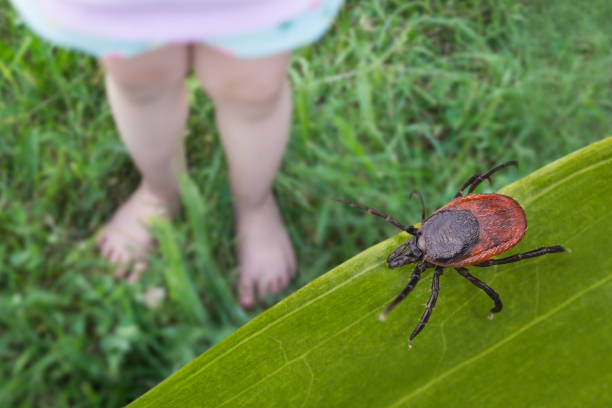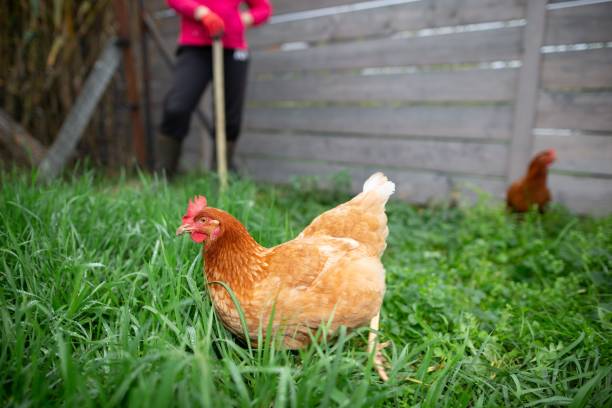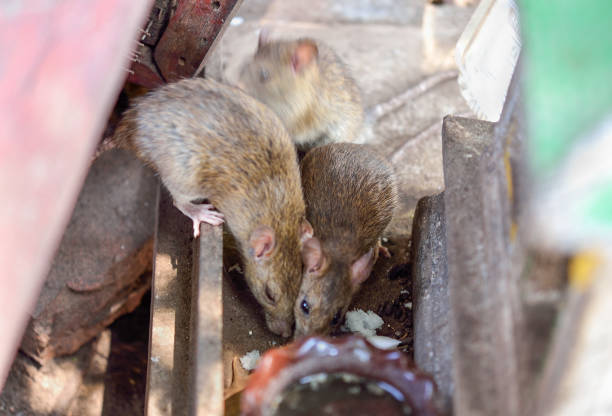How to Keep Bugs Out of Your Yard
Are pesky bugs wreaking havoc in your yard, turning your peaceful outdoor haven into an insect-filled nightmare? Don’t fret! In this article, we’ll guide you through effective strategies to keep bugs at bay and regain control over your yard. From natural remedies to smart practices and useful products, you’ll discover a range of methods that will help you enjoy a bug-free outdoor space. So let’s dive in and bid farewell to those unwanted critters!
Introduction
Your yard is meant to be a place of relaxation and enjoyment, but when bugs invade, it can quickly become an unpleasant experience. From mosquitoes and ants to flies and beetles, bugs can not only be a nuisance but also carry diseases or cause damage to your plants and lawn. However, with the right approach, you can minimize their presence and reclaim your yard for outdoor activities.
Importance of Keeping Bugs Out of the Yard
Keeping bugs out of your yard is crucial for several reasons. First and foremost, it ensures the well-being and safety of you and your family. Many insects, such as mosquitoes, can transmit diseases like West Nile virus or dengue fever. By reducing their population in your yard, you significantly lower the risk of contracting these illnesses.
Moreover, bugs can cause damage to your yard and garden. Certain pests like grubs and aphids feed on the roots and leaves of plants, leading to weakened foliage, stunted growth, and sometimes even plant death. By implementing effective bug control measures, you can protect your plants and promote their healthy development.
Common Bugs Found in Yards
Before we delve into the methods of bug control, let’s familiarize ourselves with some common bugs you might encounter in your yard:
Mosquitoes: These blood-sucking insects are notorious for their itchy bites and ability to transmit diseases.
Ants: Ants are social insects that often build nests in lawns or near structures, causing annoyance and potential structural damage.
Flies: Flies can multiply quickly and be a nuisance during outdoor gatherings. Some species, like stable flies and horse flies, can also bite humans and animals.
Ticks: Ticks are known carriers of Lyme disease and can be found in tall grass, shrubs, and wooded areas.
Beetles: Beetles come in various species and can damage plants, trees, and lawns by feeding on their leaves or burrowing into the wood.
Fleas: Fleas primarily affect pets but can also infest outdoor areas, leading to itchy bites and potential household infestations.
Grubs: Grubs are the larvae of beetles and can cause significant damage to lawns by feeding on the roots of grass.
Understanding the bugs you’re dealing with will help you tailor your bug control methods effectively.
Natural Ways to Keep Bugs Out of the Yard
If you prefer natural and environmentally friendly approaches to bug control, there are several methods you can try:
Creating a Barrier with Plants
Certain plants act as natural bug repellents, helping create a barrier between your yard and pesky insects. Consider incorporating the following plants into your landscape:
Lavender: Lavender’s fragrance repels mosquitoes, flies, and moths. Plant it near outdoor seating areas to keep bugs away.
Marigolds: Marigolds emit a scent that repels aphids, mosquitoes, and other bugs. Plant them around your vegetable garden or flower beds.
Citronella Grass: Citronella grass is well-known for its ability to repel mosquitoes. Plant it in pots or as a border around your yard.
Mint: Mint plants repel ants, flies, and mosquitoes. Place potted mint plants near entrances or outdoor seating areas.
Rosemary: Rosemary’s scent deters mosquitoes, flies, and beetles. Grow it in pots or as a hedge near outdoor living spaces.
Using Essential Oils and Natural Repellents
Essential oils and other natural repellents can be effective in keeping bugs away. Here are some options to consider:
Citronella oil: Dilute citronella oil with water and spray it around your yard or on your clothing to repel mosquitoes.
Peppermint oil: Mix peppermint oil with water and use it as a spray to deter ants, flies, and spiders.
Neem oil: Neem oil is a natural insecticide that can be diluted and sprayed on plants to repel a variety of pests.
Garlic spray: Create a garlic spray by blending garlic cloves with water and spraying it on plants to repel insects.
Removing Standing Water
Stagnant water provides breeding grounds for mosquitoes and other insects. Take these steps to eliminate standing water:
Empty containers: Regularly empty containers, such as flower pots, buckets, and bird baths, that can collect water.
Clean gutters: Clear clogged gutters to prevent water accumulation.
Fill low spots: Fill low-lying areas in your yard to prevent water from pooling.
By reducing the availability of standing water, you’ll minimize the number of mosquitoes and other bugs in your yard.
Maintaining a Clean and Tidy Yard
A clean and well-maintained yard is less attractive to bugs. Follow these practices to keep your yard tidy:
Regular Lawn Maintenance
Mowing: Regularly mow your lawn to keep the grass at an optimal height, as longer grass can provide hiding spots for bugs.
Weeding: Remove weeds promptly, as they can harbor insects and compete with your plants for nutrients.
Aerating: Aerating your lawn improves soil drainage and reduces moisture, which can discourage bug breeding.
Overseeding: Overseeding helps maintain a thick and healthy lawn, making it more resilient to bug infestations.
Clearing Debris and Clutter
Remove leaf litter: Clear fallen leaves and other organic debris, as they create damp environments that attract bugs.
Trim vegetation: Trim bushes and shrubs away from the house to reduce potential entry points for bugs.
Store firewood properly: Keep firewood away from the house and elevate it off the ground to discourage pests.
By keeping your yard clean and well-maintained, you create an environment that is less inviting to bugs.
Attracting Natural Predators
Encouraging natural predators in your yard can help control bug populations. Consider the following:
Birdhouses and birdbaths: Install birdhouses and birdbaths to attract birds that feed on insects.
Beneficial insects: Introduce beneficial insects like ladybugs and praying mantises, which prey on garden pests.
Attracting these natural predators can create a balanced ecosystem in your yard, reducing the need for chemical bug control methods.
Avoiding Bug-Attracting Practices
Certain practices unintentionally attract bugs to your yard. By avoiding these practices, you can discourage bug infestations:
Proper Garbage Management
Secure garbage bins: Ensure garbage bins have tight-fitting lids to prevent bugs from accessing them.
Dispose of garbage regularly: Promptly dispose of food waste and other garbage to avoid attracting bugs.
Limiting Outdoor Lighting
Use yellow or LED lights: Replace white outdoor lights with yellow or LED lights, as they are less attractive to bugs.
Reduce lighting intensity: Dim or turn off unnecessary outdoor lights to minimize bug attraction.
The Role of Insect Screens and Barriers
Installing insect screens on windows and doors can prevent bugs from entering your home. Additionally, you can use barriers like fine netting or fencing to keep bugs out of specific areas in your yard, such as vegetable gardens.
Bug Control Products and Professional Services
If natural remedies and preventive measures aren’t sufficient, you may consider bug control products or professional services. These options include:
Insect repellents: Use bug repellents that are safe for outdoor use, following the instructions on the label.
Bug zappers: Bug zappers attract and kill bugs using ultraviolet light. Place them away from seating areas.
Professional pest control: Consult a professional pest control service for severe infestations or persistent bug problems.
Conclusion
Keeping bugs out of your yard is essential for a pleasant outdoor experience and the well-being of your family. By implementing natural remedies, maintaining a clean yard, attracting natural predators, and avoiding bug-attracting practices, you can significantly reduce bug populations. Remember to use bug control products and seek professional help when necessary. Enjoy your bug-free yard and reclaim your outdoor space!
FAQs
Can bugs cause damage to my yard?
Yes, certain bugs can damage plants, lawns, and structures in your yard. Taking preventive measures and implementing bug control methods can minimize the damage.
Are bug repellents harmful to pets?
Some bug repellents can be toxic to pets. It’s important to read the labels carefully and choose pet-safe repellents or consult with a veterinarian for advice.
How often should I mow my lawn to keep bugs away?
Regularly mowing your lawn to a recommended height, usually around 2 to 3 inches, helps deter bugs by reducing their hiding spots.
Can planting certain flowers help repel bugs?
Yes, certain flowers like marigolds and lavender have natural bug-repelling properties. Planting them strategically in your yard can help deter bugs.
What should I do if I have a severe bug infestation?
If you’re dealing with a severe bug infestation that natural remedies and preventive measures cannot control, it’s advisable to seek professional pest control services for effective treatment options.







